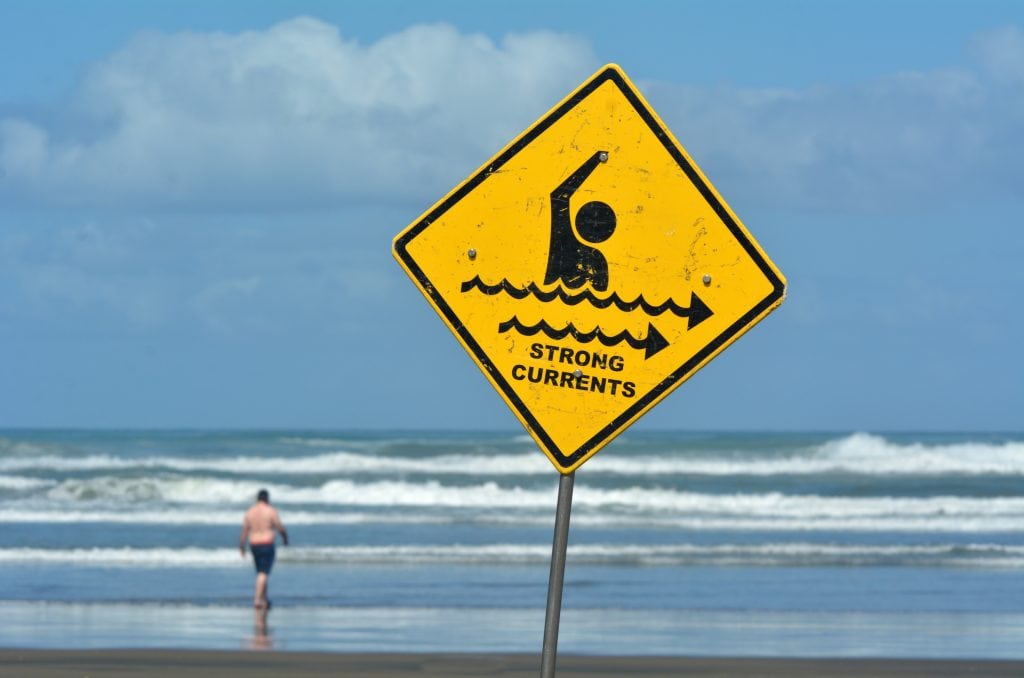filter posts:
Date
These Things Should Mark Us
 In reprimanding those who depend on their good works for salvation, Paul counters with a picture of what a Christian is to do. He wrote that we are to worship by the Spirit of God, glory in Christ Jesus, and put no confidence in the flesh.
In reprimanding those who depend on their good works for salvation, Paul counters with a picture of what a Christian is to do. He wrote that we are to worship by the Spirit of God, glory in Christ Jesus, and put no confidence in the flesh.
When you think of worship, don’t think “standing at your pew, singing worship songs.” That’s only a small part of worship. To become a worshipper means that our direction and our affections are changed, not just for a few minutes on Sunday and not just in a certain location, but all the time and in every place. Jesus teaches us that worship is not a service or a religious ceremony. It is not dependent on a place or a liturgy or smells or bells. Worship is what Christians cannot help but do all the time, because the Spirit of God has moved in and taken over. I saw a picture of this recently as I visited with Hilda at Twin Lakes. She is 94, a widow, and a wonderful woman of God who blesses me every time I see her. Hilda is not able to attend church, but boy, does she love Jesus, and she talks to him all day long. She said with a wink, “I tell the Lord, ‘Now, if I am asking too much, you tell me!’”
“Glory in Christ Jesus.” That’s what Hilda was doing. This is just a natural outflow for those who worship by the Spirit of God, because the work of the Spirit is to glorify the Son.
“Put no confidence in the flesh.” How can we survey the wondrous cross on which the Prince of glory died, and then pat ourselves on the back? Good job reading the Bible this morning! Great prayer at church, you really knocked that one out of the park! You know gained you some points with God for sure!
Kind of turns your stomach a little doesn’t it? Beware of becoming the older brother in the story Jesus told about the prodigal son. The point of the story was not really the penitent prodigal younger brother, but the proud, pharisaical older brother, whose confidence was in his works, which made him a stay-at-home prodigal. The older brother, the proud prodigal said in anger to his father, “Look, these many years I have served you,” while refusing to come in and celebrate that his brother had come home. Then he said with disgust, “I never disobeyed your command.” Do you see his ‘religion?’ “Look what I did. Look how many rules I have kept!” Because his confidence was in his own self-righteousness, he felt justified in being angry with his father, even accusing his father of not loving him enough. He was a legalist, just like many today who measure their worth to God, and therefore what He ‘owes’ them, by their own good deeds.
Listen, the flip side is true as well. Many Christians fear God’s disapproval because they constantly weigh whether they do enough, whether they love enough, whether they serve enough. That’s prodigal thinking. What brought the prodigal home was not the thought that he really could do better if he tried harder. No. What brought him home was a confidence that his father would take him in, even if only as a hired servant. His confidence was in his father, not in his own works. What a surprise when he was welcomed with a kiss, a ring, shoes, and a robe!
We also can come home every single day with that same expectation and hope, that our Father will take us in, not because of our pitiful ‘good deeds,’ but because of the work completed by His Son.
September 25, 2017
Add These Qualities to Your Life
 If Epaphroditus were around today, he might be in Texas or Florida with cleaning supplies and food to give away. Or maybe in Southeast Asia. Any place where people need help. There are many just like Epaphroditus, some who are reading this column today. He lived in the first century and you can read about him in the book of Philippians. Epaphroditus brought funds from the Philippian church that enabled Paul to survive in a Roman prison, which did not provide food, clothing or medical attention to inmates. I like what Paul said about this man, and suggest these are five qualities we all need. Paul called him a brother, fellow worker, fellow soldier, messenger, and minister.
If Epaphroditus were around today, he might be in Texas or Florida with cleaning supplies and food to give away. Or maybe in Southeast Asia. Any place where people need help. There are many just like Epaphroditus, some who are reading this column today. He lived in the first century and you can read about him in the book of Philippians. Epaphroditus brought funds from the Philippian church that enabled Paul to survive in a Roman prison, which did not provide food, clothing or medical attention to inmates. I like what Paul said about this man, and suggest these are five qualities we all need. Paul called him a brother, fellow worker, fellow soldier, messenger, and minister.
Brother: this is what we call a man in the church when we don’t remember his name. “Hey, brother, how are you doing?” But Paul uses the word to describe the relationship he had with Epaphroditus. That’s how we are eternally connected to one another, not by skin tone or language or nationality or race, but by blood. The blood of Jesus makes us brothers and sisters. It reminds me, with the racial tension in our nation right now, that I am much more closely related to the African-Americans in our church who are believers than I am to the closest relative I have that does not know Jesus. We are family. Period.
Fellow worker: this is important. Paul was the up front apostle who preached to thousands and planted churches and led the expansion of the gospel in the first century. Epaphroditus was part of the support team. And yet, they were equals.
Fellow soldier: There’s a spiritual battle raging in the world, one that will continue until Jesus returns. The most dangerous place in any battle is right next to the man who doesn’t realize he is in a battle. Or that doesn’t want to be in the battle. Or is not prepared and equipped to fight the battle. That guy can get you killed. This man, Epaphroditus, was no wilting flower. He was battle-tested and willing to risk his life to complete the mission that he had been given.
Messenger: Epaphroditus was entrusted to bring a gift to Paul. It would have been a large amount of money. Then he was entrusted by Paul to take the apostle’s letter back to the Philippians. In the scheme of things, which was worth more? The letter! But in each mission, the messenger was trustworthy.
Minister: this word carries the idea of priestly duties. Epaphroditus was there not just to give a gift to Paul, but to minister to his needs. I heard a man speak on Labor Day about work, and he asked this question: What percentage of what you did yesterday was sacred, and what percentage was secular? Think about that, and answer honestly. Do you think that maybe 20% of what you do in a normal day is sacred? Or even 50 percent? Listen, dear readers. There is no separation for the Christian between the sacred and the secular. Everything we do is sacred. That’s why Paul wrote, “Whatever you do, whether you eat or drink, do all to the glory of God.” Not only that, the truth is that we are each called into the ministry. Each of us is necessary for God’s glory to be realized in His church and to be seen in the world.
Brother (or sister), worker, soldier, messenger and minister. Wouldn’t that look good on your tombstone? Cindy and I joke about what will be on ours one day. I say her tombstone will say, “I just couldn’t get everything done.” I am afraid mine will say, “He was a jerk, but he was our jerk.” But I’m working hard to get “brother, worker, soldier, messenger, and minister” on there. Don’t call the guys at Askew & Peterson Monument just yet.
September 18, 2017
Choose People Over Tasks
 It is one thing to be available to serve in the church or in the community. It is another thing to be compassionate. When Paul referred to a young man he trusted enough to send to the church in Philippi, he said something important about Timothy. Paul wrote, “I have no one like him, who will be genuinely concerned for your welfare.” An available person is really not useful unless he or she is also genuinely concerned for others. You don’t want someone keeping the nursery that doesn’t like babies, no matter how available she is! You really shouldn’t ask someone to visit the sick that has a track record of grumbling and complaining before, during and after making such visits. What was it about Timothy that made Paul choose him over every other person in the city of Rome?
It is one thing to be available to serve in the church or in the community. It is another thing to be compassionate. When Paul referred to a young man he trusted enough to send to the church in Philippi, he said something important about Timothy. Paul wrote, “I have no one like him, who will be genuinely concerned for your welfare.” An available person is really not useful unless he or she is also genuinely concerned for others. You don’t want someone keeping the nursery that doesn’t like babies, no matter how available she is! You really shouldn’t ask someone to visit the sick that has a track record of grumbling and complaining before, during and after making such visits. What was it about Timothy that made Paul choose him over every other person in the city of Rome?
We know there were people who were not quite as timid as Timothy. He had a reputation for such, and Paul had to light a fire under him at least once by way of encouragement. There were certainly people in the church in Rome who didn’t have health issues, as Timothy did. No doubt there were people in the church in Rome who were older than Timothy, and more experienced. But those things, timidity, ill health, and youth were not limiters. No, the problem, the limiter, was a lack of compassion for others. Those Paul passed over simply did not care enough about other people. Timothy, with all his weaknesses, had one thing going for him. He put the Lord’s interests ahead of his own, and he put people ahead of tasks.
I say with shame that it has been a cause of tears in my marriage on more than one occasion, when I did not show genuine concern and compassion for people. My biggest concern was getting something done, and I allowed no one to get in my way, so that I could complete the task. You all know that there are people who are much more task-oriented than others, and I would admit to being one of them. We “task-driven” folks are continually frustrated by people who don’t get things done as quickly as we do. Or that sometimes don’t complete a task at all. But here’s the thing. These same people we tend to look down on are usually much more relational, and much more likely to stop their “all-important” task and tend to someone’s more important need.
Dietrich Bonhoeffer wrote, “We must be ready to allow ourselves to be interrupted by God. God will be constantly crossing our paths and canceling our plans by sending us people with claims and petitions. We may pass them by, preoccupied with our more important tasks…. It is a strange fact that Christians and even ministers frequently consider their work so important and urgent that they will allow nothing to disturb them. They think they are doing God a service in this, but actually they are disdaining God’s ‘crooked yet straight path.’”
Listen, dear reader. We need each other, but mostly we task-oriented people need to be more like you relational people. There is a balance, and I am not saying that if you are relational, it’s fine if you never complete a task. No, God called us to do good works, the ones He has prepared for us, and it glorifies Him for us to do that and do it well.
The greatest work, however, is to love the Lord, and to love the people that He has placed in our lives. For people who learn to do that well, all the mundane tasks in the world seem silly in comparison.
I hope to be one of those people some day.
September 11, 2017
Hold Fast to Something Secure
 My kids love to tell the story of the time when two of them were out in the ocean during our family vacation and got caught in a rip tide. Let me say quickly that these were not 6 year olds. They were teenagers who knew how to swim, and who knew that when the tide is pushing you out to sea, you either float for a few minutes, or you swim parallel with the ocean until you can make your way into shore. They said they were doing all of those things but it wasn’t working. So, they started yelling for me to come out and help them. This is why they love to tell the story, because they claim that as they were screaming their lungs out, I was happily sitting on the beach, sipping a drink and reading a magazine. Look, I don’t remember that event at all, and therefore I don’t think it happened. But their version was they were struggling for their very existence while their dad was oblivious.
My kids love to tell the story of the time when two of them were out in the ocean during our family vacation and got caught in a rip tide. Let me say quickly that these were not 6 year olds. They were teenagers who knew how to swim, and who knew that when the tide is pushing you out to sea, you either float for a few minutes, or you swim parallel with the ocean until you can make your way into shore. They said they were doing all of those things but it wasn’t working. So, they started yelling for me to come out and help them. This is why they love to tell the story, because they claim that as they were screaming their lungs out, I was happily sitting on the beach, sipping a drink and reading a magazine. Look, I don’t remember that event at all, and therefore I don’t think it happened. But their version was they were struggling for their very existence while their dad was oblivious.
I thought about that last week when I was sitting on the same beach, watching my grandchildren in the water. The tide was rough and they are little, so their father and mother were out there with them, keeping a close eye. Each of the little guys was wearing a swim vest or a floatie. They were also sometimes holding onto a raft or a boogie board. I noticed that even with all of that to keep them afloat, the inevitable happened. A big wave would surprise them, tossing them hard to the surf, sometimes bringing tears along with their scraped knees and elbows.
It reminded me that there is nothing we can hold onto in the ocean, or in all the world, that will protect us from any possibility of harm. I know Bill Withers used to tell me that I could lean on him. He said, “You just call on me, brother, when you need a hand, we all need somebody to lean on.” Now that I’ve put that song in your head, let’s say thanks, Bill, but I need something more substantial to lean on! If we can’t lean on Bill, what can we depend on? Some would say, “I need to look out for number one. After all, when push comes to shove, and every other cliché I can think of, there’s only one person I can count on, and that’s this one: me.” Can I put it to you gently? You are about the last person you should be leaning on and counting on when the roll is called up yonder. Giving yourself a big ‘ol bear hug through life will not prepare you to meet the Lord. Just the opposite. OK, so what else can we hold onto? Well, there’s money. Stuff. Jesus said there’s not enough money or stuff anywhere to secure one sorry soul. He said, “What does it profit a man if he gains the whole world and loses his soul?” OK, maybe we could hold onto education. Maybe the key is just knowing more, and piling up degrees. Hey, education is a great floatie, and we should all have some, but in the storm that’s coming, it will not hold your head above water. No, the hymn writer has it right: our hope is built on nothing less than Jesus’ blood and righteousness. He alone is the Word of Life. Jesus Christ is our only Savior.
And here’s great news: He will hear your cry. He will never ignore your plea for help when the waves are overtaking you.
September 4, 2017
